Confronting Violence Against Women and Girls on a Global Scale
By Jane Weed-Pomerantz, former Mayor of Santa Cruz, CA; Positive Discipline Lead Trainer, Local2Global Participant
 As a resident and former mayor of Santa Cruz, California and long time WILPF member, I have always worked to stop wars and demilitarize from within the US and as a delegate on several international delegations in El Salvador, Nicaragua and the former USSR.
As a resident and former mayor of Santa Cruz, California and long time WILPF member, I have always worked to stop wars and demilitarize from within the US and as a delegate on several international delegations in El Salvador, Nicaragua and the former USSR.
I was one of six delegates from WILPF’s Local2Global Program selected for the first time to attend the 2013 United Nations Commission on the Status of Women 57 (CSW57) in New York, a historic event.
I left for New York City feeling curious, optimistic, resolved to observe and learn, anxious to meet new people and wishing for more perspective. I knew I was about to slam into the hard cold reality of gender-based brutality—in families, schools and communities globally—as a result of war, conflict, religious fanaticism and out of control international arms trade and human trafficking.
Fortunately, I also knew I would be among many activists doing the work to stop and prevent these horrors. For a week and a half, I would be joining legions of brilliant people doing the very best they can with very few resources to address the multi-dimensional needs of people across the globe.
Meeting each other for the first time on Saturday, March 2, my five fellow WILPF delegates and—seasoned peace activists Rita Maran, Sheila Martel, Suzi Ditmars, Peggy Luhrs and Beth Kirk—were prepared to be mentors and witnesses for learning with a practicum of 15 women attending from Colleges and Universities from all over the US.
To my delight, these bright, worldly and determined women were already doing all sorts of crazy and important things to improve their communities. My faith in the future of leadership from young women was expanding and the exchange of hopes, dreams, and business cards began.
We joined other WILPF branch delegations from around the world for an orientation and celebration of the largest contingent totaling 70 attending in WILPF history.
The next day hundreds more attended the Non-Governmental Organization (NGO) CSW57 Consultation Day for context, cultural expression, celebration of NGO work and crystallization of the issues. Check out the awesome girls performance group called Girl Be Heard.
Monday was the beginning of two historic weeks with 6,000 people attending three layers of events occurring all over NYC. I happily took tips such as taking stairs instead of elevators to beat the crowds getting to mobbed workshops in tiny rooms and getting to places more than an hour ahead of time. Still, I could only manage 3-4 events a day.
Among them were UN briefings requiring pre-registration and much wrangling, parallel events sponsored by NGO Forum at CSW57—the catalogue for which was nearly an inch thick—and side events such as our formal reception at the Kazakstan Embassy as well as a party to celebrate WILPF ‘s nomination for the Nobel Peace Prize this year and the launch of the preparation for the up-coming100th Anniversary in 2015.
So many conversations, ideas, facts, images, faces, languages, colors, dress, and issues!
Our delegation shared workshop contents with each other, but even at that, we missed far more impressions and knowledge given we could not be everywhere at once. We were being brought together on this momentous occasion and at this time to further the transformational century of women on this planet.
Workshop titles included:
-
Killings and Violence Against Women based on Sexual Orientation and Gender Identity
-
Violence Against Women in War Zones: Prescriptions for ending systematic Failures in Preventing War Crimes,
-
Globalization and Violence Against Women: Examining Female Labor, Migration, and the Impact on Family,
-
Women’s Economic Empowerment and Equal Opportunities in Private and Public Sectors
Here are a few of CSW57’s first week highlights:
The Bad News
-
Women make up 56% of the 20.9 million trafficked labor worldwide, with 4.5million directly held for sexual slavery. Trafficked human labor saw a $44.3 billion dollar profit last year
-
Trafficking of women and girls is due to consumerism, dehumanization, and desensitizing of violence, lack of impunity, and stigmas for survivors. It is a thriving industry within structural bounds of capitalism and globalization.
-
Gender-based violence has roots in cultural practices, religious doctrine, hyper-masculinized societies, conflict torn and repressive regimes, and in all socio-economic strata. The increase in militarization of the planet has direct causal effects on the worsening of violence against women and girls.
-
The United Nations response has been woefully inadequate, half-hearted and stymied by obstructionist nation states such as my own and those states deep in conflict, war and political wrangling.
Some Responses
-
dealing with the gap between commitment and action, the framing of the issue as one of human rights (for frameworks of SCR1325, and CEDAW), working at national levels to strengthen the rule of law and expansion of intervention, restitution, and trauma services.
-
putting survivors at the policy table to claim their rights, get restitution and engage in civil society for development of systems and new norms concerning gender equality including family and school supports to improve communication, collaboration for problem solving and building respectful relationships.
-
mobilizing men as allies. Excellent work and mobilization is being done in many post conflict areas such as:
-
creation and implementation of school-based curriculum on gender violence
-
scaling up the roll of the bystander and importance of intervention
-
use of high quality media strategies to reach and shift mindset in civil society
-
implementation of prevention policies including:
-
reducing alcohol consumption
-
reducing availability of guns
-
engaging men in anger management,
-
encouraging men as fathers, and
-
increasing women’s economic empowerment
The Good News
As enormous as the statistics are, there were some success stories and hope at CSW57. I can share only a small slice of the reality from this event, but I made a point of going to workshops that emphasized prevention, healing, and empowerment actions for what we want, not what we don’t want. I was deeply touched by what I learned!
Programs funded by large foundations and implemented by NGOs are researching to understand the effects of trauma and expanding education and developing programs that assist families to heal and build relationships based on respect and dignity—power with, not power over. These very powerful programs are spreading like wildfire because of the positive, concrete, simple, and effective message to stop violence.
Among these programs are:
One Billion Rising The Biggest Mass Global Action To End Violence Against Women & Girls In The History Of Humankind occurred in February this year. It is a beginning of new energy to escalate the change in ending violence. It created the opportunity for councils of indigenous women to participate in global problem solving, brought to the surface the intersection of issues that both cause and affect violence against women.
Breakthrough builds human rights culture. The One Million Men One Million Promises and Ring the Bell, Bell Bajao campaigns are brilliant. There are many examples of ads on YouTube. The simple positive act of interrupting the abuse by ringing the bell!
Circle of 6 A fast, easy-to-use and private phone application for iphone, blackberry and android to prevent violence before it happens. Need help getting home? Need an interruption? Two touches let your circle know where you are and how they can help. It’s quick and easy to reach the six friends you choose. Connect with your friends to stay close, stay safe and prevent violence before it happens.
We Can or We Can Global Network (WCGN) is a worldwide social movement to change attitudes and behavior to end all violence against women. A grass roots, holistic campaign rooted in concrete personal change, visible collective action and changes in institutions. Tens of millions have been reached and now 3.26 million ‘Change Makers’ have been formally registered in more than 15 countries.
PCI Media Impact Empowers communities worldwide to inspire positive social and environmental change through storytelling and creative communications. Received Avon Foundation for Women’s Global Award for Excellence in Communications. All types of media are used as mediums for encouraging shifts in mindset, behaviors and civil society.
Sonke Gender, Justice Network Works to create the change necessary for men, women, young people and children to enjoy equitable, healthy and happy relationships that contribute to the development of just and democratic societies. Sonke pursues this goal across Southern Africa by using a human rights framework to build the capacity of government, civil society organizations and citizens to achieve gender equality, prevent gender-based violence and reduce the spread of HIV and the impact of AIDS.
February 19th Global Day of Action grassroots women, feminist organizations and local authorities engaged in an assessment of the safety of public places, followed by inventories of tangible ways to increase safety including trimmed pathways, to park and street lighting thereby encouraging women and girl’s empowerment and engagement in civil society. As of March 1st reports indicate 66 actions took place in 58 cities across the globe. You can see some of the results of the actions so far on their Facebook page. Sponsored by the Huairou Commission.
As a Lead Trainer for the Positive Discipline Association, I have found great opportunities to address the root causes of conflict and build respectful relationships. The quest for real human rights on a global scale by necessity involves women. There are many different levels at work in any change model and areas explored at the CSW57 were judicial remedies, the rule of law, social norms, psycho-social trends, and growing presence of programs that move away from the dominant paradigm and transform the conversation. There is still much to be done.
These are a few examples of the excellent work being done to establish peace and eliminate violence against women and girls. As we move forward in celebration of WILPF’s 100th Anniversary and put pressure on leaders to respond to the demands for equality and eliminating gender violence, let’s not forget the need for action to stop continued militarism and an out of control arms trade both globally and locally.
As WILPF’s position paper states:
"Militarization and the arms trade contribute to the legitimatization and continuation of gender inequalities, discrimination and violence against women. Emboldened by weapons, power and status, many State and non-State actors perpetrate gender-based violence with impunity. In addition to perpetuating violence, weapons are used as a source of intimidation to women's active participation in social and political life."
Help plan the festivities for 2015, renew your membership in WILPF and urge others to join. It was huge that over 1,000 women marched on the Hague in 1915 demanding an end to WW1. With climate change, the banking crisis, corporate undermining of democracies and continued exploitation of labor, women are uniting and will provide push back for real solutions.
While the statistics on violence against women and girls are devastating, there is hope. We are mobilizing and make no mistake—the face of WILPF internationally is young, skilled and determined!
Image credit: Madeleine Rees, WILPF Secretary General, Barbro Svedberg, Project Coordinator of WILPF's Middle East and North Africa project and Jane Weed-Pomerantz, former Mayor of Santa Cruz, CA., Positive Discipline Lead Trainer, L2G Participant and a long time WILPF member

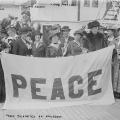
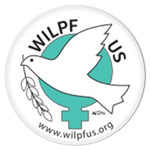 Cost covers postage:
Cost covers postage: 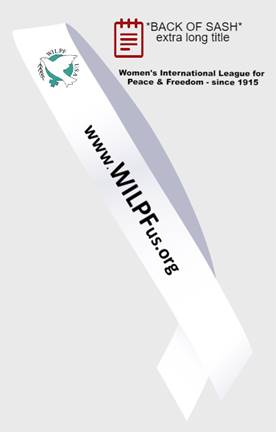 WILPF members can show their “peace pride” by wearing our new sash at demonstrations, peace vigils, and marches. These four-inch-wide white sashes are light enough to wear in hot weather and can be worn over heavy coats in the cold. The front of the sash displays the blue WILPF logo and website, and on the back, WILPF's name is spelled out in full.
WILPF members can show their “peace pride” by wearing our new sash at demonstrations, peace vigils, and marches. These four-inch-wide white sashes are light enough to wear in hot weather and can be worn over heavy coats in the cold. The front of the sash displays the blue WILPF logo and website, and on the back, WILPF's name is spelled out in full.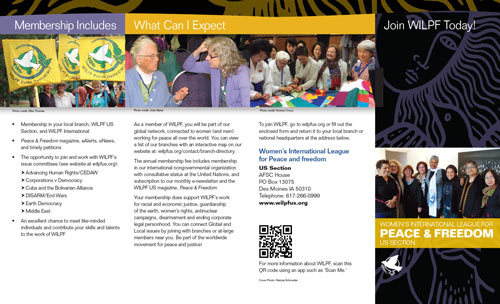
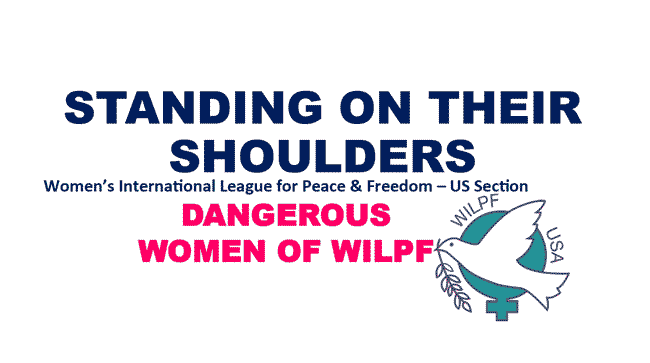
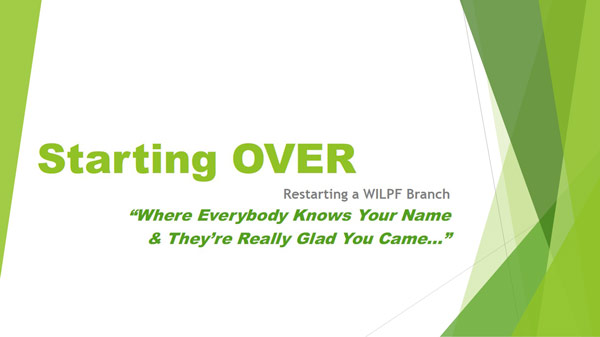
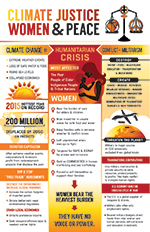
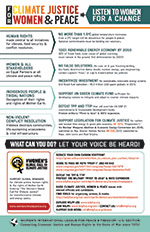

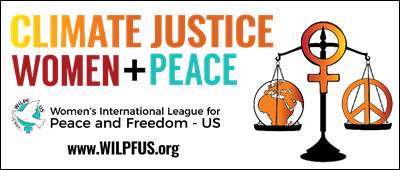
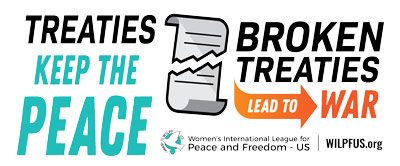
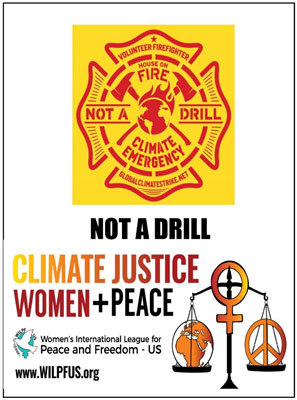

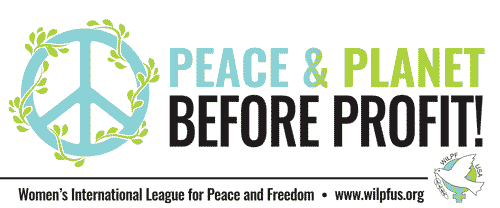
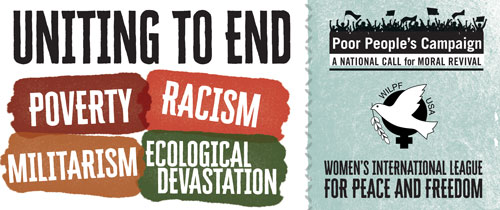
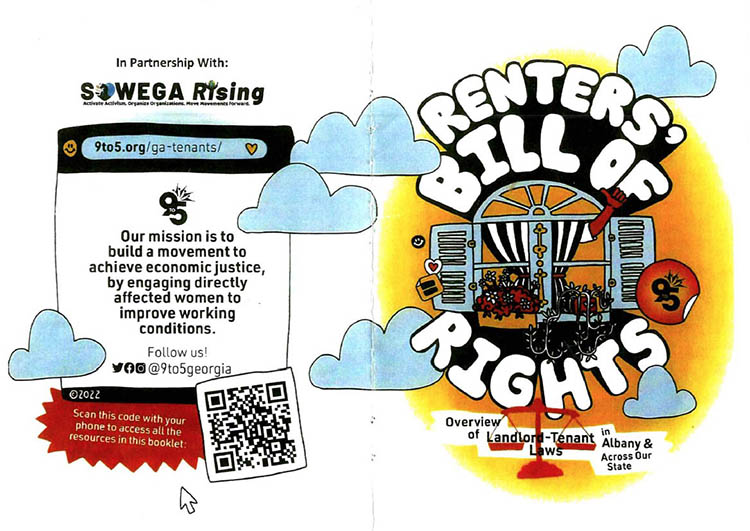
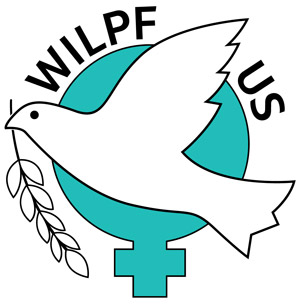
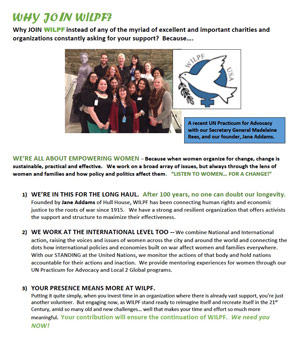
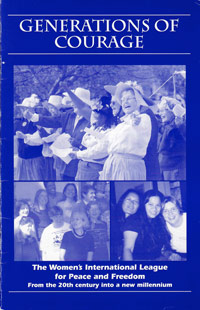
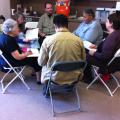
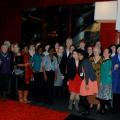

 As a resident and former mayor of Santa Cruz, California and long time WILPF member, I have always worked to stop wars and demilitarize from within the US and as a delegate on several international delegations in El Salvador, Nicaragua and the former USSR.
As a resident and former mayor of Santa Cruz, California and long time WILPF member, I have always worked to stop wars and demilitarize from within the US and as a delegate on several international delegations in El Salvador, Nicaragua and the former USSR. WILPF's Practicum in Advocacy took place at the 57th session of the Commission on the Status of Women (CSW) at the United Nations Headquarters in New York City. The Practicum ran from Saturday, March 2 through Saturday, March 9. Fifteen women from universities across the United States were given temporary UN delegate status and were able to attend official UN sessions as well as side and parallel events put on by nation states and NGOs. The opportunity allows the women to monitor UN and NGO operations first-hand and more importantly, to observe and participate in WILPF's ongoing advocacy at the United Nations as it related to this year's CSW theme, the elimination and prevention of all forms of violence against women and girls.
WILPF's Practicum in Advocacy took place at the 57th session of the Commission on the Status of Women (CSW) at the United Nations Headquarters in New York City. The Practicum ran from Saturday, March 2 through Saturday, March 9. Fifteen women from universities across the United States were given temporary UN delegate status and were able to attend official UN sessions as well as side and parallel events put on by nation states and NGOs. The opportunity allows the women to monitor UN and NGO operations first-hand and more importantly, to observe and participate in WILPF's ongoing advocacy at the United Nations as it related to this year's CSW theme, the elimination and prevention of all forms of violence against women and girls. The Commission on the Status of Women is a phenomenal venue for WILPFers to connect with women internationally, as we work together for conditions that ensure peace and justice globally. This year, as a returning member of the Local2Global contingent, I enjoyed a full circle moment. I was reunited with the notable speaker, writer and teacher, Blanche Wiesen Cook. Blanche was my master’s thesis advisor at the C.U.N.Y. Graduate Center in the early ‘90s. As a professor, Blanche mentioned WILPF in class, and it made me wonder, what is this organization with the odd acronym? As fate would have it, we re-met on International Woman’s Day (3/8/13) at our WILPF reception at the Vermillion Restaurant in NYC.
The Commission on the Status of Women is a phenomenal venue for WILPFers to connect with women internationally, as we work together for conditions that ensure peace and justice globally. This year, as a returning member of the Local2Global contingent, I enjoyed a full circle moment. I was reunited with the notable speaker, writer and teacher, Blanche Wiesen Cook. Blanche was my master’s thesis advisor at the C.U.N.Y. Graduate Center in the early ‘90s. As a professor, Blanche mentioned WILPF in class, and it made me wonder, what is this organization with the odd acronym? As fate would have it, we re-met on International Woman’s Day (3/8/13) at our WILPF reception at the Vermillion Restaurant in NYC.

